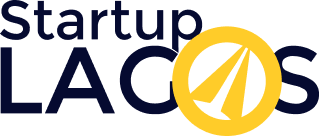Elon Musk's Starlink has swiftly ascended to become Nigeria's third-largest Internet Service Provider (ISP) by subscriber count, as indicated by the latest data from the Nigerian Communications Commission (NCC).
According to the NCC's report, Starlink's active subscriber base in Nigeria grew to 23,897 in the fourth quarter (Q4) of 2023. This represents a 113% increase from the 11,207 customers it had in the third quarter (Q3) of 2023, showcasing Starlink's rapid growth in the Nigerian market.
Market Leaders: Spectranet and FiberOne
Despite Starlink's impressive growth, Spectranet, one of Nigeria's longest-standing ISPs, retained its market leadership with 113,869 active subscribers. Following Spectranet, FiberOne held the second position with 27,000 active users at the close of 2023.
ISP Landscape in Nigeria
The NCC's database reveals that by the end of 2023, there were 245 licensed ISPs in Nigeria. However, only 106 of these had active customers in Q4 2023, with a cumulative total of 262,206 active users. This figure, while significant, pales in comparison to the internet subscriber base of the country's four major mobile network operators. As of December 2023, MTN, Airtel, Globacom, and 9mobile collectively boasted 163.8 million active internet subscriptions.
Starlink's Competitive Edge
Starlink officially launched its services in Nigeria in January 2023, and despite its higher costs compared to local ISPs, it has generated considerable interest. This is largely due to its satellite-based service, which provides reliable internet access in areas with poor network coverage. This appeal has allowed Starlink to quickly surpass many local ISPs that have been in operation for years.
To attract more customers, Starlink reduced the price of its router by 45% in April 2024, dropping from N800,000 to N440,000, although the monthly subscription fee remains at N38,000.
Challenges for Local ISPs
Local ISPs in Nigeria face challenges in matching the growth and customer satisfaction levels achieved by Starlink. Many have been unable to expand their customer bases as effectively, which raises questions about their competitiveness and service quality. The high interest in Starlink indicates a significant demand for more reliable and widespread internet services, which local ISPs have struggled to meet.
Starlink's rapid rise in Nigeria's ISP market underscores the shifting dynamics in the country's internet service sector. While traditional ISPs like Spectranet and FiberOne maintain their lead, Starlink's innovative satellite technology and aggressive market strategies are reshaping customer expectations and preferences. Local ISPs will need to enhance their services and competitiveness to keep pace with this new entrant.
Play audio
Comments
Add your comment
Categories
Startup Raises
262
Feature
83
Fintech
39
Fresh News
699
How To
84
Acquisition
39
Reports
22
Opinion
57
Recent Posts
WhatsApp Makes It Easier to Find Businesses and Channels with New Updates
WhatsApp is introducing a suite of new features ai...
Lagos Engages Stakeholders in Shaping the Proposed Innovation Bill 2025
In a decisive move to reinforce its position as Ni...
Apply Now: 2025 AWS Startups Generative AI Accelerator
AWS Startups is now accepting applications for its...
Weekly DStv Subscriptions May Soon Launch in Nigeria as MultiChoice Tests Flexible Pricing
DStv’s parent company, MultiChoice, has begun test...
Meet the Founder Who Turned Down $1.5 Million and Built One of Africa’s Fastest-Growing Companies Two Years in a Row
Most startups pursue large funding rounds to accel...
Related Post
Lagos Engages Stakeholders in Shaping the Proposed Innovation Bill 2025
In a decisive move to reinforce its position as Nigeria’s leading innovation hub...
Weekly DStv Subscriptions May Soon Launch in Nigeria as MultiChoice Tests Flexible Pricing
DStv’s parent company, MultiChoice, has begun testing weekly subscription plans...
FG Targets 35 Million Disabled Nigerians in Digital Inclusion Drive
The Nigerian Federal Government has made a promising commitment to foster inclus...








No comments